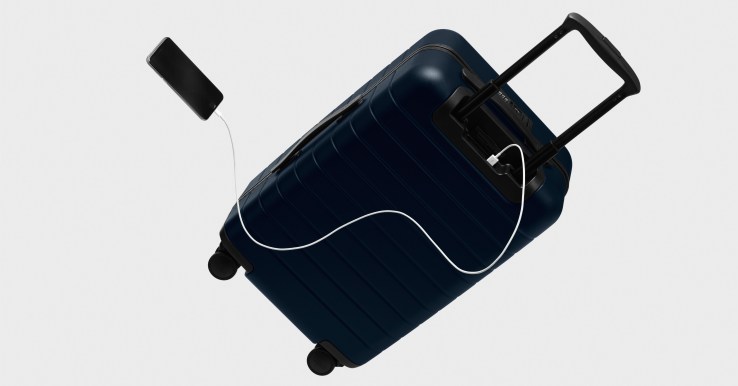
What do people actually want in luggage? A phone charger, unbreakable exterior, and maximum packing space at a resonable price is what Away discovered. So it built a line of sleek but expansive polycarbonite suitcases equipped with battery packs, and sold them direct-to-consumer.
Now after selling nearly 100,000 suitcases and generating $20 million in revenue, Away has raised a $20 million Series B led by existing investor Global Founders Capital plus Forerunner Ventures, Comcast Ventues, and Accel Partners. They were attracted by Away’s $50 million revenue run rate and strong unit economics that should make it profitable this year.

The cash brings Away to $31 million raised, and will fund its entry into retail with plans to open four to six retail stores. Next, Away seeks to become a lifestyle brand with its new podcast and forthcoming print and digital magazine.
Finally, Away will grow its product line from the two carry-on and two checked luggage pieces it currently makes. Co-founder Jen Rubio tell me Away plans to “make the one-perfect everything that you need for travel.” While she wouldn’t give specifics, you could imagine the startup selling an Away toiletry kit.

Away co-founders (from left): Steph Korey and Jen Rubio
By applying lean startup methodology and the direct-to-consumer strategy Rubio and co-founder Steph Korey learned as some of the first 15 employees at Warby Parker, Away is shaking up the stodgy luggage market. The company has grown to 66 employees in New York since launchng just 15 months ago. That’s because it initially focused on customer surveys to find the needs unfulfilled by over-priced luxury luggage, ugly utility products, and budget brands whose suitcases brokedown quickly
I’ve been testing Away’s checked and carry-on luggage and found...
Read more from our friends at TechCrunch